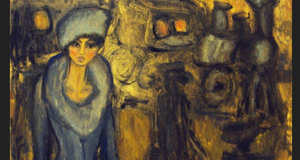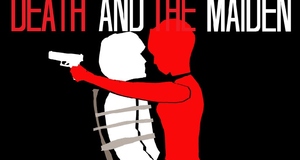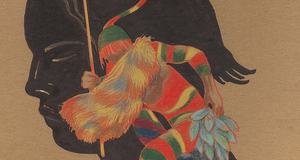Ivan's Transformation and Coming to Terms in Leo Tolstoy's "The Death of Ivan Illyich"
By
2010, Vol. 2 No. 03 | pg. 2/2 | « One of Ivan's antagonists is the doctor. The celebrated doctor is very similar to Ivan in that they are both aloof from the people they are supposed to help. Just as the people in legal predicaments are forced go before Ivan Illyich, the judge, to be saved from prison or Siberia, sick people are forced to call upon the doctor to be saved from death. Ivan observes that the doctor's manner of meticulous questioning is “to an iota precisely what Ivan himself had done...in dealing with peoples at court”. Ivan previously enjoyed the power of being able to “ruin anyone he wished to ruin”, now the roles are reversed and, to the doctor, Ivan is helpless, faceless statistic. On another visit, the doctor enters the room and is at first jovial to Ivan. This is because Ivan is a customer, but when the doctor begins examining Ivan as a patient, his tone changes. Just as Ivan sees legal cases as collections of stolid facts in which humanity is not a factor, the doctor sees Ivan as a malfunctioning machine, with a defect than must be repaired. Ivan asks for something to alleviate his pain, but the doctor interrupts him, saying that “you sick folk are all the same”. The doctor does not want to end suffering; the doctor wants to repair a defect and fulfill his obligations as a doctor to heal. The doctor is torn between the diagnoses of appendicitis, chronic catarrh, and floating kidney, but ignores Ivan's question of whether or not the condition is terminal. This situation parallels the opening discussion of the Krasovski case. Guilt or innocence was not important; all that mattered was the technical details of jurisdiction; in Ivan's case, the matter is whether Ivan's life or death will fall under the jurisdiction of the digestive, respiratory, or urinary system respectively. Ivan's former callous ways are reflected back to him in the doctor; on several occasions we are given Ivan's interpretations of the doctor’s words and actions. Ivan substitutes the doctor's words with things that he would have said to a defendant in an analogous court setting.Ivan's also comes to recognize the empty and callous nature of his family. When he was well, he did not care for his family and would frequently go off and play bridge to escape from them, but when he is too ill to leave the house, he must endure them. Though part of the family's hatred for Ivan may be the product of the increasing irritability that accompanied his illness, their overall behavior towards him is terrible, even with the mitigating circumstance. If it were not for Ivan's large salary, she would rather he be dead and unable to bother her anymore with his pain. The visibility of Mrs. Golovin's thoughts parallel the visibility of Egorovich and Petrovich's thoughts: they only see Ivan's death in terms of how it impacts their wallets. Ivan understands the self centeredness of his family and how it extended to himself when the family, minus him, goes to the theatre. Ivan is at first offended to find out that the family is leaving him alone in the house, but remembers that he was the one who had bought tickets to the play before he fell ill. The family is dressed in their finest clothes to go to the theatre; it probably took them a long time to beautify themselves for the evening, but though they were willing to spend the time to get dressed and the time to see the play, they are unable to devote a few minutes to say goodbye to Ivan before they leave him alone. The theatre is also a symbol of falsehood. Mrs. Golovin insincerely asks Ivan how he is feeling and that is the only semblance of charity granted him that evening. Fiodr Petrovich begins to converse with Ivan about the play, but soon the family becomes distracted over a mundane topic. Ivan's daughter brazenly consults the watch Ivan bought her, and announces that enough time has been wasted on their father and it is time to leave. When they are gone, their “falsity” goes with them, giving Ivan some spiritual relief. When he is alone, Ivan tries to imagine the good parts of his life, but his hindsight reveals that all of the best moments of his life were, in retrospect, not so great at all. All the pleasures that he loved were false and empty. He realizes that the society he lives in is the source of all the falsehood. As he rose in status, more and more of the pleasures he found joy in were worthless “as though [he] had been going steadily downhill while [he] imagined he was climbing up”. Ivan looks at the face of Gerassim, a simple peasant in his employ. Gerassim is the most prominent of the few characters who are capable of showing genuine concern for others. Ivan recognizes that Gerassim went through extraordinary measures to provide him with comfort while his own family just masks his pain with opium and leaves him alone. He compares the wholesome and happy lifestyle of Gerassim to his own false one and concludes that his entire life was wasted on lies and that he has no more time left to make up for it. As he deteriorates further, his clothes, trappings of the society, taunt him about how falsehood has enveloped him so he casts them off. For three hours before his death, Ivan screams and flails in agony. His son grabs his hand and begins to cry, and Ivan feels sorry for him. His wife begins to cry as well and Ivan feels sorry for her. Ivan knows that ,in life, he never liked his family and realizes that he pities them; he finds in himself the genuine care for others that he and his world were lacking. In the previous chapter, Ivan bemoaned how he would never be able to change his ways, but he was able to care, restoring purpose to his life. At this point, the pain leaves Ivan and death is no longer something to fear. Ivan has just confessed his sins and freed himself from falsehood. His soul is now spotless and no hell awaits him; death becomes a good thing. Before his death, the text writes that during what appears to the outside observer as two hours of agony, only an instant elapses from Ivan's perspective. This destruction of measured time brings to mind the Respice Finem associated with Ivan's watch. If one were to examine Ivan's life, he would see the same callous, self centered, empty life common to many. However, if one were to “look to the end”, he would see that Ivan is very different. ReferencesTolstoy, Leo, and Lynn Solotaroff. The Death of Ivan Illyich. Toronto: Bantam, 1985. Print. Suggested Reading from Inquiries Journal
Inquiries Journal provides undergraduate and graduate students around the world a platform for the wide dissemination of academic work over a range of core disciplines. Representing the work of students from hundreds of institutions around the globe, Inquiries Journal's large database of academic articles is completely free. Learn more | Blog | Submit Latest in Literature |













